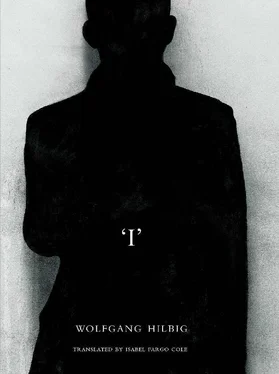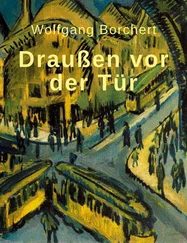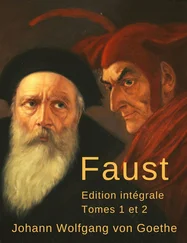What also reminded me of the so-called annoying business was my discovery that the graffito was signed with a big fat ‘C’. . the signature was so ostentatious that it seemed strange I hadn’t noticed it first. This was no doubt due to a certain professional blindness. . up in the offices, in such cases, they’d use the word suppression only towards a new recruit; a long-time practitioner like myself would be accused at the very least of a lapse in vigilance, that is, a sort of precursor to treason. . I laughed at that audibly, and somewhat affectedly — of course the letter ‘C’ hadn’t been added until later, and its appearance beneath the graffito indicated that my resting place down here at the end of the world had been paid more than a single chance visit; it was frequented , a term that had to be used after two or more visits.
Suddenly it hit me to interpret the character ‘C’ as my own initial, but I quickly dismissed this as nonsense. . I wasn’t called by a name with the letter ‘C’, not under normal circumstances! — A much more disturbing reason to assume that I was being visited down here — in my absence, that is; it wasn’t I who was visited, but my shadow. . and the appearance of the ‘C’ proved that these shadow contacts were increasing in frequency — was a fact less easy to forget: the removal of a seat that had been perfectly tailored to my needs, for which reason I had to spend much more time resting up in the offices. And I was forced to compensate this loss with a plain wooden crate which initially kept me awake much too long for my liking.
It was a largish, stable produce crate, perhaps a potato crate; I’d overturned it and placed it against the concrete wall so that it served as a tolerable seat. — Leaning against the wall, my aching feet stretched out in front of me, I reflected in this pose on my dark paths through the city of Berlin; I struggled to collect my thoughts and think only of the paths still ahead of me, or the past few days’ paths, above and below the street surface. . and no further back, I was here, and here I wished to remain — with my ear to the scoured-smooth concrete, thus I rested. — Sometimes, though, I tried to make out the sounds on the opposite side of the wall. I heard nothing; over there, it seemed, there were no sounds. Only now and then did I imagine there’d been a very faint clinking jitter; it was always gone at once, and my ears merely seemed to echo it — it could have been a large refrigerator switching on; after that a fine hum came through the wall, and when it broke off, again with that barely perceptible jitter, I started out of my sleep. And in this sleep I’d seen the light behind the wall: a warm, bright light that shone behind my shut lids when I thought of the future in my sleep — over on the other side, where the interiors were pale and tiled and reflected the light back still more brightly; there was furniture there, and probably proper toilets and baths, and perhaps storerooms, shelves stocked with full bottles, and the little end tables in front of them, with clean glasses upturned on trays. . it haunted my sleep, the thought of the tunnel beneath the wall, it haunted the sleep of the entire country, perhaps this was the thought I was supposed to bring to light. . and maybe there were houseplants there, dark green large-leafed plants from southern climes, flourishing in the constant warmth and the radiant light, for over there, in the basements on the other side, it was always day, while here it was always night.
Oh, how he wished he was over there. . I thought, as though speaking in my mind of a stranger from my past. No, not up in the offices, not one bit, down in the basement would have suited him just fine. Where the administrators of the supplies proceeded at their leisure, demonstrating diligence, repeatedly counting the still-sealed, neatly stacked cartons and the sacks lined up as though ready to march, and, bored and complacent, checking them against the quantities in their lists; here. . he would have thought over there. . the question of flour , the flour question posed to Lenin has been answered: Here comes the flour! Here you walk through the series of rooms where the endless rows of reserves repose, you can rest a cautious hand on the neat and well-filled produce crates, and think purely contemplatively about security: the supplies will last, and last a long while, when up above ground the explosion has come and the world has gone out of joint.
And over there perhaps he could have a small desk, somewhere with good light, not authorized, but tolerated, with his properly stacked papers upon it — and the content of these papers would long have been known to his superior Feuerbach, he’d have read them in secret, but that wouldn’t matter. . and at some point Feuerbach might even comment: Not so bad, the stuff you write. . you’d cut an excellent figure back there, in the back-courtyard scene! You don’t need to hide from them.
Oddly, such thoughts reassured me. . they actually exerted a certain power upon me, they flowed over me, clouding my vision, and under their brunt I nodded my head until my eyes fell shut. — It was almost warm below ground, at least not downright cold, I didn’t feel chilly when I drowsed here for an hour or two. I was hardy enough, I could rightfully claim, to serve in the underworld — though this thought harked back to a romanticism that had little to do with our reality, Feuerbach’s and mine. Feuerbach was a pen-pusher, or at least that was the part he played, and he held all thought of practicalities at arm’s length. He let nothing slip about his past, but I could have sworn from some of his remarks that he’d been familiar with certain forms of grassroots work. . had he once walked the same paths as I? — It was hard to imagine his hypersensitive David Bowie face down here in the dark. Sometimes he’d hinted that he approved of what I did. . that was at a time when any encouragement on his part annoyed me and made me suspicious. He’d commented then that my mobility in the city was likely to gain me the right to a coffee-making receptionist one day. Naturally he didn’t have one himself. . and a remark like that already seemed to deal the first jab from the opposite direction; of course he wasn’t allowed to rein me in, but I wondered whether I’d suddenly become too active for his taste. He had no idea that I didn’t want an office with a receptionist, at least not one that was imposed upon me. . he couldn’t understand where my interest lay, I thought, he saw the things I did out of this interest as a striving for advancement. — The gracious comments with which he received certain of my reports still rang in my ears: If I’m supposed to countersign your works of art, you’d better start leaving yourself out of them. He could understand, he said, that being of a poetic nature I had to have a penchant for the autobiographical, but I should keep in mind that official documents had to be drawn up somehow from my lyrical prose. For instance, he said: Personal details are very useful. But about the people you’re trying to get the dirt on, of course. So just think of the words of a much more famous writer: The person is always at the centre. . — Who was that again, Gorky? I asked. — Most good ideas come from the adversary. The point, however, is to change them. .
For some time, then. . quite a while now, and increasingly in the past year or so. . I’d noticed signs of dissatisfaction on Feuerbach’s part. But perhaps I was confusing things, and these signs were in myself, and arose from my own dissatisfaction with Feuerbach’s behaviour. . when I thought about it, it had started when Reader’s first readings attracted our attention. I myself had discovered the ‘phenomenon’ and — albeit belatedly — brought the news of it to Feuerbach’s desk. I had first heard Reader while trailing a young woman — a student, I guessed, who cropped up at most literary events in the so-called Scene, and had caught my eye because she was constantly writing down reading dates in a tiny notebook — of whom I’d then lost sight again.
Читать дальше












